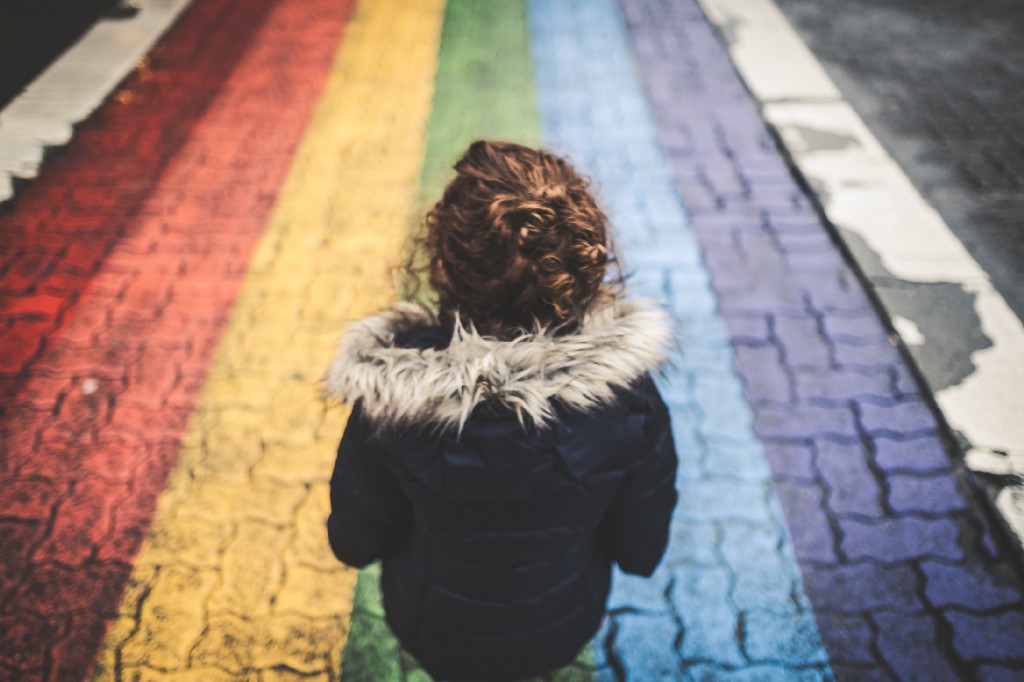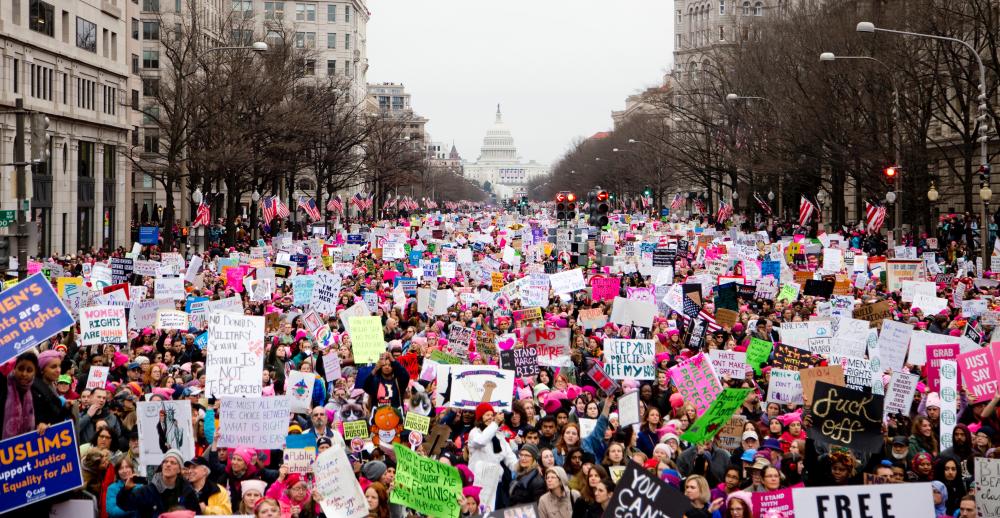essays
How Applying to Grad School Becomes a Display of Trauma for People of Color
Rather than discussing our academic work, we’re expected to gain admission based on stories of hardship

A few years back, I had the misguided notion that I would get a Ph.D. in English literature; I hoped to remain within the safe confines of academia, the only place I’d thus far thrived. During a meeting with my advisor, she fervently counseled against the Ph.D., telling me about the difficulties of success and the job hunt. Then she paused.
“Can you close the door?” she asked, hesitating slightly.
I stood and shut the door to her office, confused about the sudden need for privacy.
“Can I ask what your background is?”
It took me a moment to understand the question, but I quickly said, “Oh, I’m Egyptian.” She squinted, as if thinking of how to proceed.
“I probably shouldn’t say this,” she said, “but play that up. Ph.D. programs love hearing about that. Talk about it in your personal statement.”
Her stance suddenly switched, and rather than advise against the Ph.D., she spoke as though she were passing down some secret wisdom — a way to game the system and achieve unlimited success through some sort of minority trauma story. I went home and laughed, and although I knew my minority status didn’t guarantee anything, I also realized she was right. My best bet of garnering an admission officer’s attention was to play up my background.
A personal statement for a Ph.D. program is tricky for a number of reasons. You are required to talk about yourself — hence the “personal” — but also to talk about your research and somehow seamlessly connect both. At that time, I was studying modernist literature, and I wrote my thesis on James Joyce and Nietzsche. I remember sitting in my room attempting to put together some loosely connected thoughts on Joyce, Egypt, and my cultural upbringing. I still have a document titled “Personal statement ideas” saved on my computer in a folder called “Ph.D. stuff.”
At that time, we were also right in the midst of the Arab Spring, and the Egyptian revolution had happened fairly recently. So I began my personal statement with a story about watching the revolution’s footage on the news and discussing what freedom meant to me. Then, in the middle of the second paragraph, I suddenly transitioned into talking about my future research, with a poorly constructed sentence that jumped from modernist literature to the idea of freedom as a concept to freedom for Egypt. I didn’t get into too many specifics because I didn’t really know what I was talking about at the time. Looking back at that personal statement now, it showed.
Needless to say, I did not get into a Ph.D. program, which turned out to be more of a blessing than anything else, as I quickly realized that track wasn’t for me. However, the experience taught me that society, white America specifically, regularly asks minorities and people of color to tokenize and exploit themselves, talking about their cultural backgrounds in a marketable way in order to gain acceptance into programs and institutions we are otherwise barred from.
White America asks people of color to tokenize and exploit themselves in order to gain acceptance into programs and institutions we are otherwise barred from.
I wonder now what my personal statement would have sounded like if my advisor had not given me that advice. I likely would not have talked about Egypt or my culture at all, and maybe I shouldn’t have. Maybe I could have formed a more cohesive narrative about my research instead. But I was writing about James Joyce, competing with hundreds of white men doing the same, and so I needed a unique angle. My advisor made me aware, for the first time, that as a woman and a person of color, I had to “play up” my background in order to enter these primarily white institutions.
Two years later, I applied to MFA programs in creative writing, realizing that what I really wanted to focus on was writing fiction. I remembered what my advisor said, and I knew her advice still applied. But again, I struggled with how to bring up my ethnicity in an organic, uncontrived way. Simply discussing my cultural background abstractly would not work, as I’d learned from my PhD applications. I needed to tell a story, one that would garner the attention of admissions committees. However, I hadn’t suffered any particular hardship or trauma as a result of my ethnic background. I grew up with a certain amount of privilege not afforded to others. My parents were doctors, and they’d been supportive of me all my life. Still, I knew that it wasn’t enough for me to simply identify as a person of color. I had to fit into the POC stereotype: someone who has faced adversity, racism, and maybe even economic hardship.
I lay in bed, computer open in my lap, reading sample after of sample of MFA personal statements. I bought a book about applying to MFA programs. I scoured the internet for advice, reading blogs and testimonies of people who had been accepted and were now passing down their wisdom. I sat alone in my room for hours at a time scrolling the web for information, making lists in notebooks — of schools and possible ideas to write about. If I wanted them to know about my background, I had to do it in the personal statement. I was applying to programs in fiction, so I didn’t have the advantage of continuing the story of my life through a non-fiction writing sample. I did, however, decide that my writing sample would be a short story I’d written about Egyptian-Americans. There weren’t enough stories about us, so I hoped admissions committees would see that I could bring something different to their program. I wrote and revised and revised and revised, but still, I couldn’t bring myself to start the personal statement.
I didn’t want to talk about my personal life. I didn’t want to exploit myself or tokenize myself for the sake of admission. My advisor’s words rang true in my head. “Play that up,” she’d said. But I could only play it up so much.
In my personal statement, I noted that I grew up in an Egyptian home and for that reason felt different from my peers. Outside of that, though, I resisted making up or exaggerating some trauma. I thought of all the people that had experienced hardship as a result of race, gender, or sexuality, and I knew that their personal statements would likely cover those details, perhaps as a mode of performance in order to gain admission to elite programs, but I couldn’t bring myself to create a narrative of adversity. Though I couldn’t voice it in these terms back then, I felt that it was unfair that as a minority, I had to delve into my suffering and put that on display.
I did get into MFA programs, although more schools rejected me than the other way around. While I wrote a fairly strong personal statement, I can’t help but ask myself: if I’d displayed some sort of trauma, would I have been accepted to more programs?
I felt that it was unfair that as a minority, I had to delve into my suffering and put that on display.
MFA programs, in my experience, are littered with white men; there is even a parody Twitter account called “Guy In Your MFA” that tweets from the point of view of the typical straight, white man in an MFA program. I wonder if these men faced the same anxiety and mental turmoil I experienced in putting together their personal statements. I struggled to talk about my ethnic background in a way that would garner attention, while also trying to avoid exploiting myself or having to create a narrative of minority trauma. This is not something asked of white men, but people of color regularly have to share their hardships with the world in order to obtain admission into these spaces.
During my time in my MFA, I began to think about identity in a more nuanced way. My MFA thesis was a draft of a novel about an Egyptian-American brother and sister raised in a Muslim family. The novel’s themes pertain to the idea of living between two cultures: American and Egyptian. Though the story I created is fictional, many of the ideas pertain to my own life. As an Egyptian-American, I live in two worlds. One world is that of my parents and my family. While I don’t always agree with their values and traditions, those principles and their way of life will always be a part of me. However, I also live in American society, and liberal, American values course through my veins. For this reason, I will never feel truly Egyptian, but at the same time, I will never feel truly American, either. I exist between two different cultures and two different ways of life. In writing my novel, I wanted to encapsulate these ideas so that hopefully, other immigrants and children of immigrants could have a story they relate to.
When ‘Good Writing’ Means ‘White Writing’
As I began to finish up my MFA, I also thought about my future as a writer, and I started to apply to different jobs, programs, workshops, and fellowships. Each of these asked for some type of written statement, whether it was a cover letter, personal statement, or teaching philosophy. Almost all of the jobs and programs I’d applied to wanted to know something more than what they could find in my résumé. Again, I found myself trying to “play up” my Egyptian background in order to gain some type of approval. This time, though, I had more to say. I talked about identity and what it felt like to grow up between two cultures. I related back personal stories about my upbringing and my parents’ desires to have me retain aspects of their Egyptian culture.
Though I didn’t relay anything particularly traumatic, again feeling that my personal hardship was not the business of these strangers, I still resented having to include these intimate details of my childhood and my upbringing in these so-called professional applications. I wanted to focus on my work and what I could bring to the specific jobs and programs, but like graduate schools, they often called for a personal statement, so I had no choice but to get personal.
I wanted to focus on my work and what I could bring to the specific jobs and programs, but I had no choice but to get personal.
This year, I applied to an upcoming writing retreat exclusively for women of color. The retreat consists of a series of workshops and lectures all led by women writers of color, and they offered a set number of fully funded fellowship opportunities. I applied to the Arab Women Fellowship. As I began my application, I expected some type of personal statement requirement, and having written an entire novel draft that deals with cultural identity, I was now prepared. But as I scrolled through the application requirements, I found no mention of a personal statement. All they required was a project proposal, a reference, and a writing sample. For the first time, I wasn’t being asked to share intimate details of my life for an admissions committee, and I soon realized that this was because the retreat was being run by women of color. No doubt the women running this program had been asked to share their traumas and adversities for any number of applications over the years, and like me, had bristled at the expectation. They weren’t interested in asking a group of fellow WOC to trot out our back-stories in an effort to appear the most disadvantaged — our only trump card when competing against white men who had been afforded every privilege. For once, I could focus primarily on my work.
As I thought more about the idea of people of color being forced to put their trauma on display, my cousin Sarah was applying to law school. She asked me to take a look at her personal statement and give her some feedback. Her essay was beautifully written and moving, but she wrote about a deeply personal incident that she should never have had to share with an admissions committee. She knew, though, that sharing the private details of her life would capture their attention and maybe guarantee her acceptance. She told me that though she felt uncomfortable having a group of strangers read her essay, she could predict their reactions and therefore felt the need to exploit her own experiences.
My cousin’s law school application process also involved a series of “diversity statements.” Often, for people of color, it’s not enough to simply write a personal statement; there’s an additional “optional” essay asking you how you as an individual can contribute to diversity, and what in your background or life experience should be considered in the application process. Programs usually don’t require a diversity statement, but it’s implied that if you are a minority, you should write one.
Diversity statements are a relatively new phenomenon, and not every program asks for them, but when Sarah applied to law school, she wrote a diversity statement for every school she applied to — fifteen schools in total. Like me, Sarah read sample essay after sample essay in order to get a feel for what schools wanted.
“These essays are just rants of how race or ethnicity or class brought you down,” Sarah told me. “It was literally just people talking about these traumas.”
I was glad in that moment to have never had to write a diversity statement, though in my application experience, I still felt the pressure to discuss some type of adversity. If you are a minority, you are expected to display your hardship to the world.
If you are a minority, you are expected to display your hardship to the world.
During a phone call with my cousin, as we talked about her applications, I told her that the implicit obligation to focus on trauma wasn’t fair, and I asked how she felt about the whole process, recalling how I felt while putting together my grad school applications.
“It just felt really disingenuous,” Sarah said. “Because I wasn’t talking about my religion or ethnicity in a space I would have felt comfortable doing that. I felt like I was pandering to what they wanted so that they could say, ‘We’re such great people because we accepted this racially ambiguous, Muslim girl.’ I felt like I was exploiting myself.”
She expressed what I couldn’t at the time that I applied to MFA programs. I didn’t want to talk to a group of strangers about my race or ethnicity or how that affected my life and identity. It was none of their business, and while I made mention of my background, I refused to really exploit myself in the way that Sarah had to for her diversity statements.
Hearing her talk about her law school admissions process repeatedly reminded me of my own experiences. This self-exploitation is what schools and programs want. As Sarah points out, it’s almost though admissions officers want to pat themselves on the back for accepting a student who’s overcome so much and who brings “diversity” to their program.
A few weeks ago, I tutored a student who came to me with her personal statement for dental school. She was Pakistani-born and had lived there all her life, only recently moving to the States with her family. In her personal statement, she made no mention of her cultural background or ethnicity, and when she spoke of her childhood, I pictured a childhood in America. After we went through the essay, she then told me of her upbringing and her recent move to the US.
“I didn’t know any of that from the essay,” I said.
“Well, I don’t want them to read it and tell me to go back to my country.”
I was shocked at her words, at her assumption that an admissions committee would bar her entrance because of her Pakistani background — though living in this country today, it’s easy to see why she would have those fears.
“It’s just the opposite,” I said to her. “Admissions people love hearing stories about how you moved from another country and what made you do that and everything you overcame.”
As the words left my mouth, I recalled the conversation with my advisor seven years prior. I was giving the same advice, telling someone to play up her background in order to gain acceptance into a program.
It’s not fair to expect me, as a minority, to have some sort of harrowing back-story, and it’s not fair to those with actual traumas in their lives.
When I was asked to “play up” the fact that I’m Egyptian, I found myself grasping for some disadvantage to show what I’d overcome to get to where I was, but in many ways, this is not fair. It’s not fair to expect me, as a minority, to have some sort of harrowing back-story, and it’s not fair to those with actual traumas in their lives.
Before I really grasped what I was advising, I turned to my student and said: “Even if you didn’t have any obstacles, make something up. They love that.”
I hated myself for giving that advice and questioned the ethics of my telling her to make up an obstacle. But I wanted to help her in any way I could, and I knew the reality of admissions, having been through it myself. Minority students should not have to mine our traumas to prove our worth, but if we want to be afforded the same opportunities as white students, we have to exist within an unfair system. In the future, if an applicant asks me for advice, I hope I can better explain the nuances of the application process, rather than perpetuate the same rhetoric of “playing up” our hardships.








